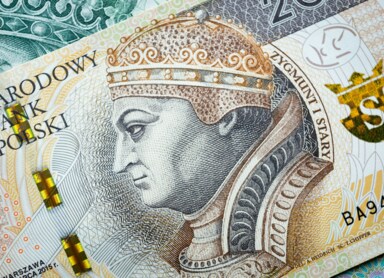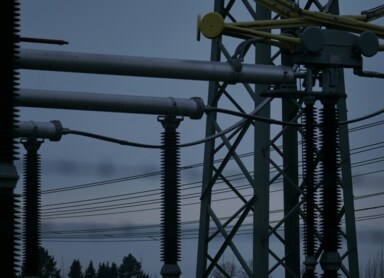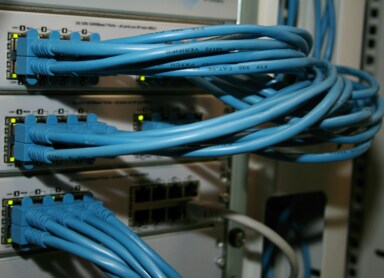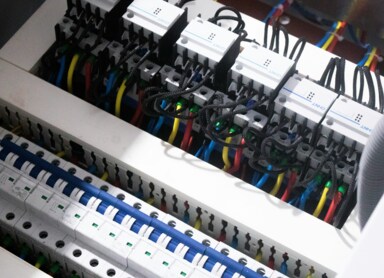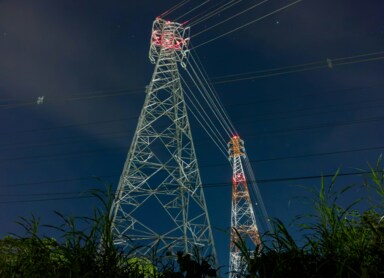Energy clusters - what are they, what are they about?
The development of the economy is driven by the increasing demand for electricity. In order to facilitate energy management in the local authority area and increase the energy security of the population, the concept of energy clusters was created. What are these?
Energy cluster - definition and characteristics
The concept of an energy cluster is defined in Article 2(15a) of the RES Act1. The legal definition is quite synthetic, so let us try to translate it into clearer language.
A cluster is nothing more than an agreement - a form of contract - entered into in order to strengthen cooperation in the field of electricity management over a large administrative area, covering up to five municipalities or one county. The cooperation includes:
- generation
- storage;
- demand balancing;
- trading;
- distribution - of electricity or fuels.
The primary task of the cluster is to develop distributed energy, i.e. energy generated by small units for local use. It is usually based on renewable energy sources, but can also include conventional sources. Unlike classical power generation, in distributed energy there is no central disposition of energy and much of the distributed generation is in the hands of private investors, which is beneficial for its optimisation and development.
Who forms energy clusters?
The RES Act requires that an energy cluster be composed of at least one of the following categories of entities:
- a local government unit;
- a municipal capital company established by a local government unit and operating in an energy cluster area;
- a capital company established by private persons in which more than 50 per cent of the share capital is held by a municipal company.
Local government entities are the axis around which the cluster revolves, but its entity composition can be much broader. It can include research and development units, universities PV (e.g. photovoltaic farms) and wind power generators, the Distribution System Operator, but also individual prosumers.
The role of "manager" in the cluster is played by the coordinator. His or her task is primarily to coordinate activities within the energy cluster and to represent it externally, in relation to other trading participants. Reo.pl can pride itself on its experience in operating with entities that are part of energy clusters.
The amendment to the RES Act facilitates the creation of clusters in Poland. Only a few years ago (2015), there were 134 such clusters operating in our country, with the Zgorzelec Renewable Energy and Electricity Development Cluster or the Czorsztyn Reservoir Energy Cluster as examples. The assumptions of the Polish Energy Policy until 2040 envisage that a total of over 300 such clusters are to appear in the following years.
All cluster members are connected to the network of the same OSD operator with a rated voltage lower than 110 kV.
Energy clusters - role and importance in the energy sector
Energy clusters encourage the development of distributed energy. At the same time, they relieve the burden on central electricity systems, giving primacy to modern technologies where their use is beneficial and justified. They are an important element of energy supply in underdeveloped areas and also support local economic initiatives.
Through the implementation of the cluster, those operating in the regulated area rationalise the management of natural resources, reducing them to the minimum necessary. This also protects residents and businesses operating in the area from the effects of a blackout, i.e. a massive loss of access to electricity. Renewable energy technologies, a key pillar in the operation of such a system, are reliable, maintenance-free and the investments themselves - although costly - pay for themselves quickly.
All energy clusters must be entered in a register kept by the President of the Energy Regulatory Office. It is kept in electronic form and remains public for everyone.
Energy cluster and sustainable development - perspectives and challenges
Energy clusters can also be seen as an instrument of sustainable development policy. By investing in renewable energy sources and optimising electricity generation, the local authority can realise the assumptions underlying the doctrine of sustainable development. This is an intergenerational policy involving the use of raw materials in a way that, on the one hand, allows for active development and, on the other, does not deplete the energy reserves available for future generations.
Sustainability can be implemented both at municipality or district level, as well as at the level of the individual participants in the energy cluster. At this point, it is worth mentioning the CSRD2, which imposes reporting obligations on certain groups of entrepreneurs with regard to, among other things, reducing their carbon footprint and investing in greener ways of obtaining energy. Participation in a cluster is a way of meeting these obligations, as well as improving the image of the company.
How to create energy clusters? Practical tips
The scope of activities within each cluster will look slightly different. Decisive for the selection of subsequent investments are primarily funds at the disposal of the local authority, the amount of funding received, but also the very idea of the investors. Let's take a closer look at the energy cluster in the Ochotnica Dolna municipality and treat it as an example of what the development of a local energy initiative can look like.
The selected project was divided into three stages3:
- Stage one included the implementation of PV installations on public facilities, the installation of electric car charging stations, the construction of a biogas plant and the coverage of the existing RES infrastructure with monitoring;
- Stage two comprised the construction of a grid-connected energy storage facility, the expansion of PV micro-installations, the construction of three photovoltaic farms, the modernisation of street lighting and the equipping of tourist sites with mobile phone charging sockets;
- Stage three involved the construction of hydroelectric power plants, an agricultural biogas plant and the selection of sites to be equipped with photovoltaic and heat pump-powered heating.
Benefits of energy cluster development - analysis and perspectives
Clusters are intended to provide economic, social or environmental benefits to its participants and to increase the flexibility of the energy system. What does this mean in practice?
- Improving the energy security of the region by reducing the frequency of failures and their duration;
- Effective balancing of electricity supply and demand;
- increased efficiency of electricity generation, distribution and consumption;
- the possibility of using 100% of the electricity for the needs of the residents of the cluster, excluding discounts and commissions;
- sustainability of the renewable energy sector through the use of the private factor;
- increasing the share of RES in meeting electricity needs.
The energy cluster initiative also raises awareness among residents and investors. Such a solution over the years should encourage the development of similar investments in more local authorities.
Energy clusters indirectly help to solve many local problems by creating new jobs, levelling the availability of electricity and lowering the carbon footprint. For numerous municipalities, the agreements can prove to be the ticket to dynamic tourism development and improving their image as a 'green area'. The creation of an energy cluster is a complex process, so it is advisable to enlist the support of professionals when implementing it.
1. https://isap.sejm.gov.pl/isap.nsf/DocDetails.xsp?id=wdu20150000478
2. https://eur-lex.europa.eu/legal-content/PL/TXT/?uri=CELEX%3A32022L2464
3. https://www.wfosigw.zgora.pl/sites/default/files/media/klastry_przklady.pdf [dostęp: 23.04.2024 r.]



